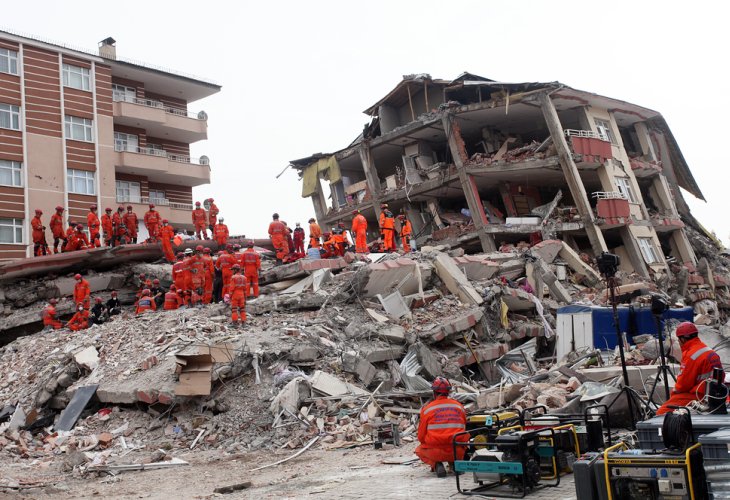Faith
Earthquakes in Judaism: Divine Messages or Random Events?
Talmudic teachings, prophetic visions, and the deeper meaning behind natural disasters in Jewish thought
 (Photo: shutterstock)
(Photo: shutterstock)When we experience a natural disaster, it's common to wonder if it is a signal from Heaven or simply a random event.
The Talmud answers: “No calamity comes upon the world except because of Israel, as it is written: ‘I cut off nations, their strongholds are desolate; I laid waste their streets … I said: surely you will fear Me, you will take correction’” (Zephaniah 3:6–7). The Sages explain that every tragedy in the world carries a message for the Jewish people. God allows destruction among the nations so that Israel will awaken with awe before Him — thus sparing us from similar devastation in our own land.
Tragic world events are intended to prompt us to look inward, and to hear the divine message. They remind us that there is a Creator, a purpose to our existence, and to move us to improve our ways.
Earthquakes in the Prophets
The weekly haftarah for Parshat Yitro, read from the book of Yeshayahu (Isaiah), describes a vision in which the Temple shakes: “The doorposts shook at the sound of the calling, and the house was filled with smoke” (Yeshayahu 6:4).
What is happening here, and what is God’s message to the prophet? God shows Yeshayahu a house trembling and filling with smoke — a symbol of the world, and especially the people of Israel, filled with God’s anger. The trembling of the Temple’s doorposts represents the spiritual leaders of the generation, who were held accountable for not guiding and rebuking the people properly.
Torah commentator Rabbi Meir Leibush (the Malbim) explains that this vision revealed how divine wrath filled the world. The leaders, symbolized by the “gatekeepers,” bore the primary responsibility because they failed to guide Israel back to the right path. The prophet himself grieves both his own shortcomings — having withheld rebuke, and the stubbornness of the people who refused correction.
How to Bring People Closer
God instructs the prophet how to reach the people, who are resistant to hearing direct rebuke. The haftarah teaches us principles of true outreach:
Don’t make them feel you’re trying to force repentance. If people sense that your goal is to change them, they’ll reject your words immediately.
Start with what can be seen and felt, not abstract logic. The first step in connection should be related to tangible things — like the wonders of creation, before moving to intellectual arguments.
Don’t push the conclusion. After presenting evidence for God’s existence, allow the individual to develop clarity themselves.
Avoid preaching or condescension. Instead of saying “You need to understand…,” speak kindly and with patience.
Maintain this approach consistently. This is not only an entry tactic, but the way to truly open hearts.
The Malbim further explains: God advised the prophet not to tell the people to “understand” or “know,” since their hearts were closed to wisdom. Instead, he was to say simply, “Hear and see.” By appealing to their senses, eventually the truth would reach their hearts, even if not immediately. The path to recognition begins with sight and sound, then tradition, and only later intellectual proof.
Until When?
The prophet asks God: how long must I continue this, when the people refuse to understand? God replies, until the cities and houses are desolate, until destruction forces them to awaken.
The Malbim interprets this to mean that this process continues until only a “holy remnant” remains — a faithful seed that will listen, repent, and return wholeheartedly, as happened in the days of King Chizkiyahu.
The Message for Us
Natural disasters are a wake-up call. They carry a divine message to straighten our ways, strengthen ourselves, and repent. For those in positions of influence over the broader public, the obligation is not to give up, but to keep guiding and encouraging others to return to the right path.

